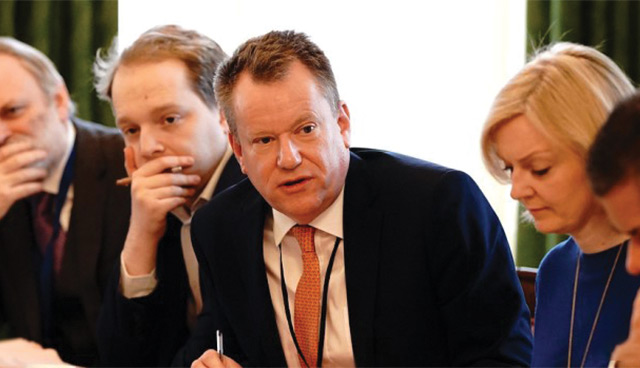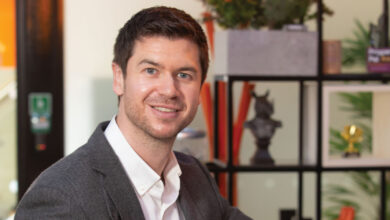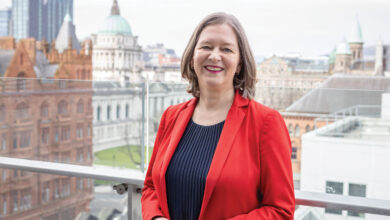Profile: David Frost

Appointed as Chief Negotiator of Task Force Europe following Boris Johnson’s resounding victory in the December General Election, David Frost wields dual swords of extensive European diplomatic experience and commitment to Johnson and his vision of Brexit.
Frost, known as “Frosty” to colleagues, had previously acted as the Prime Minister’s Europe Adviser following Johnson’s ascendance to the leadership of the Conservative Party and Number 10. He is credited with negotiating the pre-election Brexit deal with the EU that had previously been written off as unreachable and then selling it to sceptical Conservative MPs.
“Boris has the ideas, Frosty puts them into practice,” a Johnson team member told POLITICO in 2019. His close working relationship with Johnson began during his work as special adviser for foreign affairs while Johnson served Theresa May’s Government as foreign secretary. Having moved on to become Chief Executive of the London Chamber of Commerce after Johnson’s resignation, Frost kept in touch as Johnson plotted his route back to power.
It is believed Johnson’s faith in Frost stems from his ideological commitment to Brexit despite his extensive experience in European diplomacy and experience in industries that typically rely on the ease at which international trade is conducted. The graduate of St John’s College, Oxford was tapped up to replace Olly Robbins, Theresa May’s chief Brexit negotiator, after Robbins had become a bogeyman for the ardent Brexiteers Johnson was corralling.
Having joined the Foreign Office in 1987, Frost worked in Nicosia, Brussels, New York and Paris across a variety of roles and served as part of the UK’s leadership team during its EU Presidency in 2005 before going on to be the British Ambassador to Denmark from 2006 to 2008. He left the Diplomatic Service in 2013 to become CEO of the Scotch Whisky Association, where one of his responsibilities was the lobbying of politicians on the benefits of the EU single market and was appointed as a Liveryman of the Distillers’ Company in 2016. During his time away from diplomacy and governance, Frost also served on the Advisory Council of the Eurosceptic think tank Open Europe.
In 2015, Frost wrote ahead of David Cameron’s attempt to negotiate new terms with the EU that there are two key elements in any successful negotiation with the EU: having allies and making your end goal appear normal. How Frost plans on cultivating allies when the EU has negotiated as a bloc since the beginning of the Brexit process remains to be seen and, save for the possibility of reverse psychology, it is hard to see how his concession of a border in the Irish Sea last year will help him with regard to the British Government’s desire for there to be no divergence between Britain and Northern Ireland.
Writing again in 2016, Frost suggested a Norway-like arrangement for “say five years” to “reflect and if necessary, negotiate a Free Trade Agreement like Canada’s”. Given that a Norway style agreement would curb the UK’s ability to introduce the immigration reforms they have just outlined and Frost’s recent statement that post-2020 alignment with the EU would “snap dramatically and finally” the British public’s democratic consent, it appears he has now moved on from that goal.
Time is ticking for Frosty, who is attempting to reach a deal with the EU before the end of the year. With Ursula von der Leyen calling such a timetable “impossible”, it now falls to the man whose entire negotiation philosophy is the shifting of the Overton window to get shifting.





